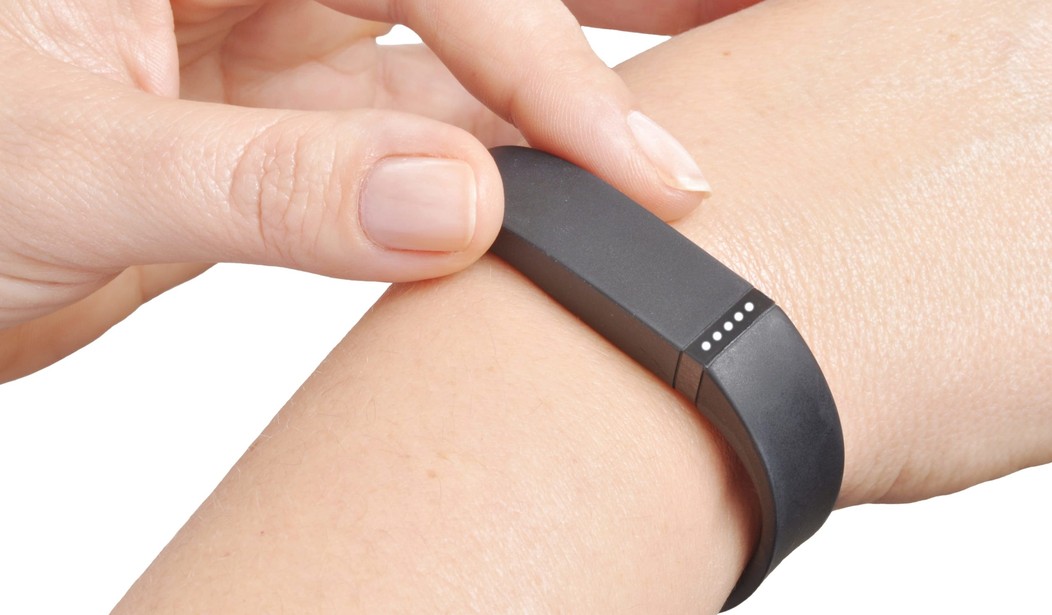In a February 2020 article in The Lancet, researchers looked into whether wearable fitness devices—the Fitbit in particular—could be used to track the spread of illnesses like the coronavirus. Their conclusion? “The ability to harness wearable device data at a large scale might help to improve objective, real-time estimates of [influenza-like illness] ILI rates at a more local level, giving public health responders the ability to act quickly and precisely on suspected outbreaks.”
Say hello to your 1.23-ounce Big Brother.
In a study funded in part by the National Institutes of Health, researchers collected 65 million pieces of de-identified data from 200,000 Fitbit users in five states—California, Texas, New York, Illinois, and Pennsylvania—in order to monitor changes in resting heart rate (RHR) and sleep patterns in order to measure changes at the population level. (We’ll get to that “de-identified” bit in a moment.)
When someone is unwell, the researchers say, “their RHR increases, their total sleep is likely to increase, and their activity is likely to decline.”
Not only that, “tracking an individual’s physiological changes over time and comparing their values over time to their individual norm or average could be a means of identifying assaults to their health.”
And you thought your wearable fitness device was only tracking your steps!
Other models used to track illness, including Twitter, Google Flu Trends, Wikipedia and other crowdsourced data sets, have their limits; they rely largely on self-reporting and are subject to large numbers of “the so-called worried” searching for information about the flu during epidemics.
“Use of sensor-based data would offer the first objective and real-time measurement of illness in a population that could potentially reduce the effect of overestimation during epidemics,” the researchers claim. Moreover:
New wearables that include continuous sensors for temperature, blood pressure, pulse oximetry, ECG, or even cough recognition are likely to further improve our ability to identify population and even individual-level influenza activity. In the future, with access to real-time data from these devices, it might be possible to identify ILI rates on a daily, instead of weekly, basis, providing even more timely surveillance. As these devices become more ubiquitous, this sensor-based surveillance technique could even be applied at a more global level where surveillance sites and laboratories are not always available.
That’s a LOT of data they’re collecting—which should raise some red flags if you’re wearing one of these spy devices on your wrist. As it turns out, Fitbit allows researchers to use some data collected from your wrist under certain circumstances, so long as they notify the user and get informed consent. “This means providing enough information about the research to enable an informed and voluntary decision to participate,” says Fitbit.
The company states that researchers are required to “mitigate the risk of re-identification of research subjects,” and consider whether “your research datasets could be linked to this publicly visible information.”
“Your research study must be reviewed or approved by an independent ethics review board charged with protecting the rights and well-being of research subjects,” Fitbit explains.
But according to the researchers in the study published in The Lancet, “De-identified Fitbit data were used for this study, which was determined by the Scripps institutional review board to be exempt from institutional review board review.” Oh, you don’t say.
Ah, but not to worry: “All Fitbit users, including those whose data are used in this study, are notified that their de-identified data could potentially be used for research in the Fitbit Privacy Policy.” In other words, when you clicked the button saying you “accept” the terms of service on your wearable device, you may have inadvertently signed up to be a guinea pig, authorizing your data to be used for research purposes.
The Chinese, of course, are way ahead of the U.S., tracking the movements of citizens using their smartphones and forcibly rounding up individuals who may have crossed paths with those infected with a virus.
My colleague Richard Fernandez wrote this week that many Americans would voluntarily sign up for such surveillance out of fear of pandemic.
One way or the other, it seems only a matter of time till we’re all connected cows. The failure to create modes of user-controlled data is the greatest single political failure today. Law and politics are the only remaining bulwark of privacy. The technical battle is over. The West is only one real crisis away from a voluntary surrender of privacy. If the virus doesn’t get us, Skynet, in some sense, will.
Many of us, myself included, have become so accustomed to being surveilled every time we look at our smartphone or turn on our computer, that we hardly even notice when manufacturers, tech giants, and governments expand their capabilities. Inch by inch, day by day we give up a bit more of our privacy. We’re so busy scrolling through our Facebook and Twitter feeds that we don’t even realize that we’re one step closer to a Chinese Surveillance State with every passing day.
There are undeniable advantages to being able to track illnesses like the coronavirus in real-time, and it may even save lives. But do the benefits outweigh the costs—the loss of our privacy and autonomy? That’s a question we’re all going to have to wrestle with. But rest assured: if given the opportunity, would-be totalitarians everywhere—government officials, health care workers, Big Tech giants—are licking their chops at the prospect of having access to every byte of our health data.
Follow me on Twitter @pbolyard










Join the conversation as a VIP Member